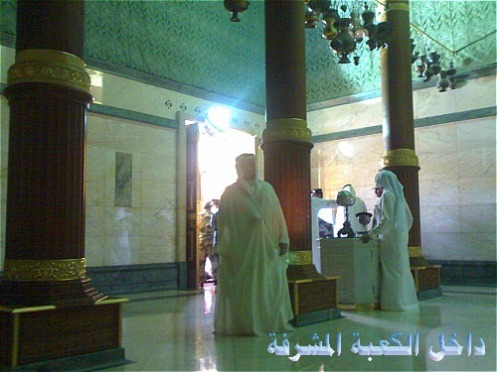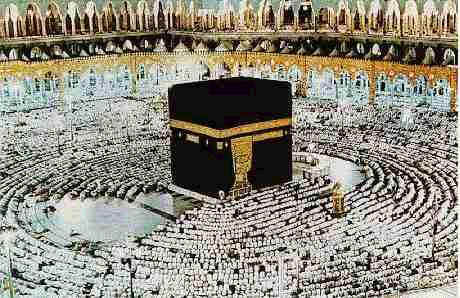Polarising villages, towns and cities along ethnic, linguistic and religious lines is one of the most common modern vices that is shaking the very foundations of our society today – a rampant fire that is being fueled by a select few for their political and material gains.
Though it’s a story of every other town in the subcontinent, there are certain factors, which set my town apart from other victims of similar malice. In fact, it is the combination of factors that is getting it the undue attention. An economically and religiously empowered, closely-knit Muslim majority town; which is a rarity not just in India but, if I am allowed to say, across the globe. The proud patron of these unique characterstics is called Bhatkal, a place 200 kms south of Goa and 150 kms north of Mangalore.
Prosperity, God-consciousness and unity – not just among Muslims but across the board – have been the hallmark of the town since time immemorial. Muslims, Hindus, Christians and Jains – whose historically significant Basadi (temple) is the jewel in Bhatkal’s crown – have lived side-by-side, complimenting each other for centuries without any trouble. Such was the state of harmony that Hindus started their annual festival chariot only after seeking the permission of a prominent Muslim family. Legend has it that when once people tried to pull the chariot without the permission, the chariot didn’t budge. Hence, the practice continues till date despite the recent troubled relationship between the communities.
One would ask, how did such a Utopian land suddenly turn into a communal minefield as it is today? It didn’t happen overnight. Years of concerted efforts and brainwashing by a certain group, which wants to paint the entire nation in a single hue, have made it possible.
Fomenting of hatred began as early as the 70’s when violence first flared up following the election of a young Muslim leader to state assembly – an initial sign of Muslim political empowerment. From then on sporadic communal violence has continued and Bhatkali Muslim leaders and youth have faced harassment, wild accusations and in some instances prolonged detention.
It all reached a height when for the first time Bhatkal’s name was dragged into acts of terrorism, a tag that some people want to force on Muslims all over the world. National media went into frenzy when Maharashtra Anti Terrorism squad (ATS) ‘suspected’ hands of three ‘alleged’ Bhatkalis named Iqbal, Riyaz and Yasin in a series of blasts across India soon after the February 2010 explosion in the western Indian city of Pune that targeted a popular eatery, killing 17 people.
A systematic campaign ensued across all sections of the media, which took every opportunity to take a dig at the town by attaching it to the ‘suspects’ and other militant organisations. Attempts were made to link the town with militant outfits and intelligence agencies from across the border. Suggestions were also made that the poster boy of ‘international terror’ Osama Bin Laden had sullied the land with a visit. This finally erupted in a volcano when a brother of one of the three accused was detained by the ATS on May 24 at the Mangalore Airport following his arrival from Dubai.
The biased Indian media lost no time in highlighting the arrested youth, Abdul Samad Siddibapa, as a ‘prime suspect’ in the Pune blast case, when in reality he was held in a bogus arms case and was never ever questioned about Pune blast in his entire period of detention of 40 days.
But the irony is that soon after the arrest, Home Minister P. Chidambaram went out of his way in congratulating the ATS team for nabbing ‘the Pune blast suspect within 100 days of its occurrence.’ The Home Ministry’s website till date quotes Abdul Samad as the prime suspect in the Pune blast, when in fact the 22-year-old systems engineer has been granted bail even in the illegal arms case for lack of evidence.
The minister’s jumping the gun, and the media towing his line, repeatedly implicating the entire town cannot be a mere coincidence. It only adds credibility to the long-standing claims of bias, systematic maligning and persecution of minorities – something that the Muslim-dominated UP town Azamgarh has been facing for years.
Why is nobody questioning the source of intelligence that led to the arrest of Abdul Samad? Why is nobody seeking clarifications from the minister, who lost no time in patting the backs of the ATS team after Samad’s arrest? Where is he now when the ATS has given him a clean chit? How will the government and media clear the stigma that will be attached with Samad forever? How will they compensate for ruining his prospects of a bright future?
Such questions will never be raised by a media, which rather than searching for the truth only believes in sensationalisation of trivial matters to increase its readership and TRP.
If the media and the authorities continue their bias towards minorities and insist on seeing them with an eye of suspicion, extremism will gain further ground and whatever chance there is for harmony would be diminished further.




